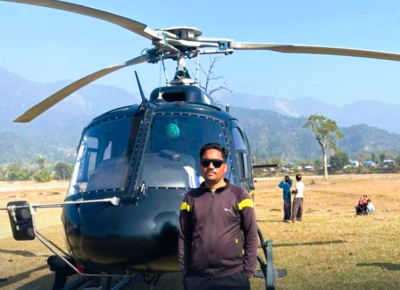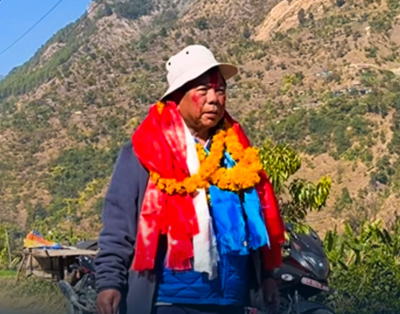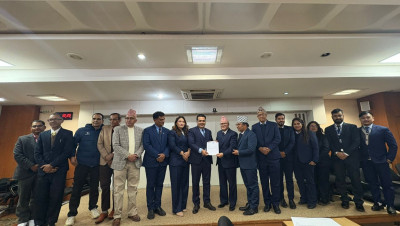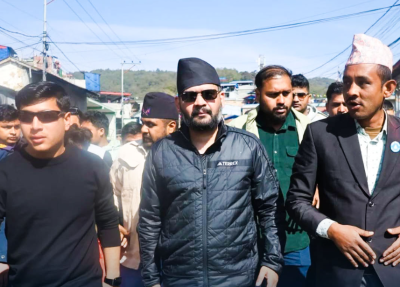Nepal’s Education Has No Standard: Bijukchhe
-1754886813.jpeg)
Sanjiv Dulal
Bhaktapur – The book Criminal Law and Criminal Justice authored by Prof. Dr. Rajitbhakta Pradhanang and Somkant Bhandari was launched in Bhaktapur on Saturday. The book is a compilation of articles by Prof. Dr. Pradhanang and Bhandari.
Launching the book, Narayanman Bijukchhe, Chairperson of the Nepal Workers and Peasants Party, remarked that the current education system in Nepal has no standard. He claimed that 25 years ago, the World Bank had trained Nepal’s leading education experts to believe and promote the idea that higher education is not necessary for the poor.
According to him, just as soft drinks like Coke and Fanta can only be consumed in summer by those who have money, higher education too has been made accessible only to the wealthy. He accused the government of cutting investment in public colleges and pushing students toward private colleges to implement such a system.
Bijukchhe also criticized the prevailing notion: “If everyone receives higher education, then who will be porters, who will farm, and who will work as laborers?” He alleged that the current government is not working in the interest of the nation but rather serving the interests of foreign capital.
He further stated that political party names in Nepal are irrelevant, claiming that “all are the same in nature.” He also stressed the need to study criminal justice systems in various countries.
The event was attended by Supreme Court Justice Meghraj Pokharel, Bhaktapur District Court Chief Judge Basudev Nyaupane, Senior Advocate Krishna Prasad Bhandari, Nepal Bar Association Central Chairperson Dr. Vijay Mishra, Mayor of Bhaktapur Municipality Sunil Prajapati, Deputy Mayor Rajani Joshi, and other dignitaries.
The 538-page book covers 21 topics ranging from the rights of the accused and their protection, a study on criminal justice provisions in Nepal’s Constitution 2015, participation in crimes under the Criminal Code, and crimes such as fraud, theft, forgery, acid or harmful chemical attacks, rape, attempted rape, and statutory rape. It also provides legal interpretations, discusses shortcomings in Nepal’s criminal law, and suggests necessary reforms.
-1754886819.jpeg)
-1754886815.jpeg)

Helicopter from Jumla lands in Salyan due to bad weather
January 30, 2026
Mahabir Pun's Appeal to Voters: Do Not Sell Your Vote for Money
January 30, 2026
Helicopter from Jumla lands in Salyan due to bad weather
January 30, 2026-1769761552.jpeg)
NRNA Must Rise Above Personal Interests: Foreign Secretary Rai
January 30, 2026-1769761552.jpeg)


-1769760538.jpg)

-1769749544.jpg)
-1769770966.jpeg)
